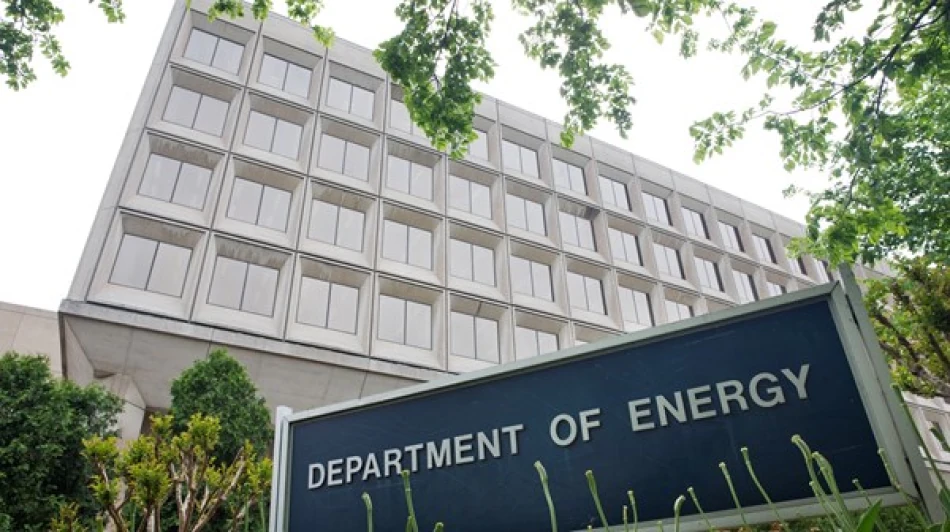
U.S. Boosts Funding for Metals and Raw Materials Sectors, Driving Economic Growth
Trump Administration Launches $1 Billion Critical Minerals Initiative to Challenge China's Market Dominance
The U.S. Department of Energy announced a sweeping $1 billion funding program to accelerate domestic production of critical minerals and raw materials, marking the Trump administration's most aggressive move yet to reduce America's dependence on Chinese-controlled supply chains. The initiative targets mining, processing, and manufacturing technologies across strategic mineral sectors that are essential for everything from electric vehicles to military equipment.
Strategic Shift Toward Resource Independence
This funding represents a fundamental pivot in American industrial policy, acknowledging that control over critical minerals has become as important as energy security. The Department of Energy will issue funding opportunity notices specifically designed to scale up domestic capabilities in mining, processing, and manufacturing of these essential materials.
The timing is particularly significant as global demand for lithium, cobalt, rare earth elements, and other critical minerals continues to surge alongside the electric vehicle revolution and renewable energy expansion. Currently, China controls roughly 80% of global rare earth processing capacity, creating a strategic vulnerability that has concerned U.S. policymakers for years.
Market Implications and Investment Opportunities
Immediate Winners in the Mining Sector
American mining companies and technology firms specializing in mineral extraction and processing stand to benefit substantially from this federal backing. The funding could accelerate projects that have struggled with the massive capital requirements needed to compete with established Chinese operations.
For investors, this signals a potential reshaping of global commodity markets. Companies developing innovative extraction technologies, particularly those focused on environmentally sustainable mining practices, may see increased valuations as federal dollars flow into the sector.
Long-term Supply Chain Restructuring
The initiative reflects a broader "friend-shoring" trend where Western nations are deliberately restructuring supply chains away from geopolitical rivals. This follows similar moves by the European Union and Australia, both of which have launched their own critical minerals strategies in recent years.
Comparing Global Approaches
Unlike China's state-directed approach, which involved decades of strategic acquisitions and below-cost production to dominate global markets, the U.S. strategy relies on targeted federal investment to kickstart private sector development. This mirrors successful models used in South Korea's semiconductor industry and Singapore's biotechnology sector.
The scale of the investment, while substantial, still pales compared to China's cumulative spending over the past two decades. However, American advantages in mining technology, environmental standards, and access to capital markets could help level the playing field more quickly than traditional market forces alone.
Technical and Environmental Considerations
The funding emphasis on processing and manufacturing technologies is particularly crucial. Raw mineral extraction is only part of the equation – the complex processing required to turn ore into battery-grade materials or high-performance magnets has been dominated by Chinese firms with decades of experience and massive scale advantages.
American companies will need to demonstrate they can match Chinese efficiency while maintaining higher environmental and labor standards. This challenge could actually become a competitive advantage as ESG-conscious manufacturers increasingly seek "clean" supply chains for their products.
Geopolitical Stakes
This investment represents more than industrial policy – it's economic statecraft. Control over critical mineral supply chains has become a key lever of international influence, as demonstrated by China's past restrictions on rare earth exports during trade disputes with Japan and the United States.
Success in building domestic critical minerals capacity would significantly strengthen America's negotiating position in future trade conflicts while reducing vulnerabilities in defense and technology sectors. The initiative also positions the U.S. to become a reliable supplier for allied nations seeking to diversify their own supply chains away from Chinese sources.
Most Viewed News

 Layla Al Mansoori
Layla Al Mansoori






